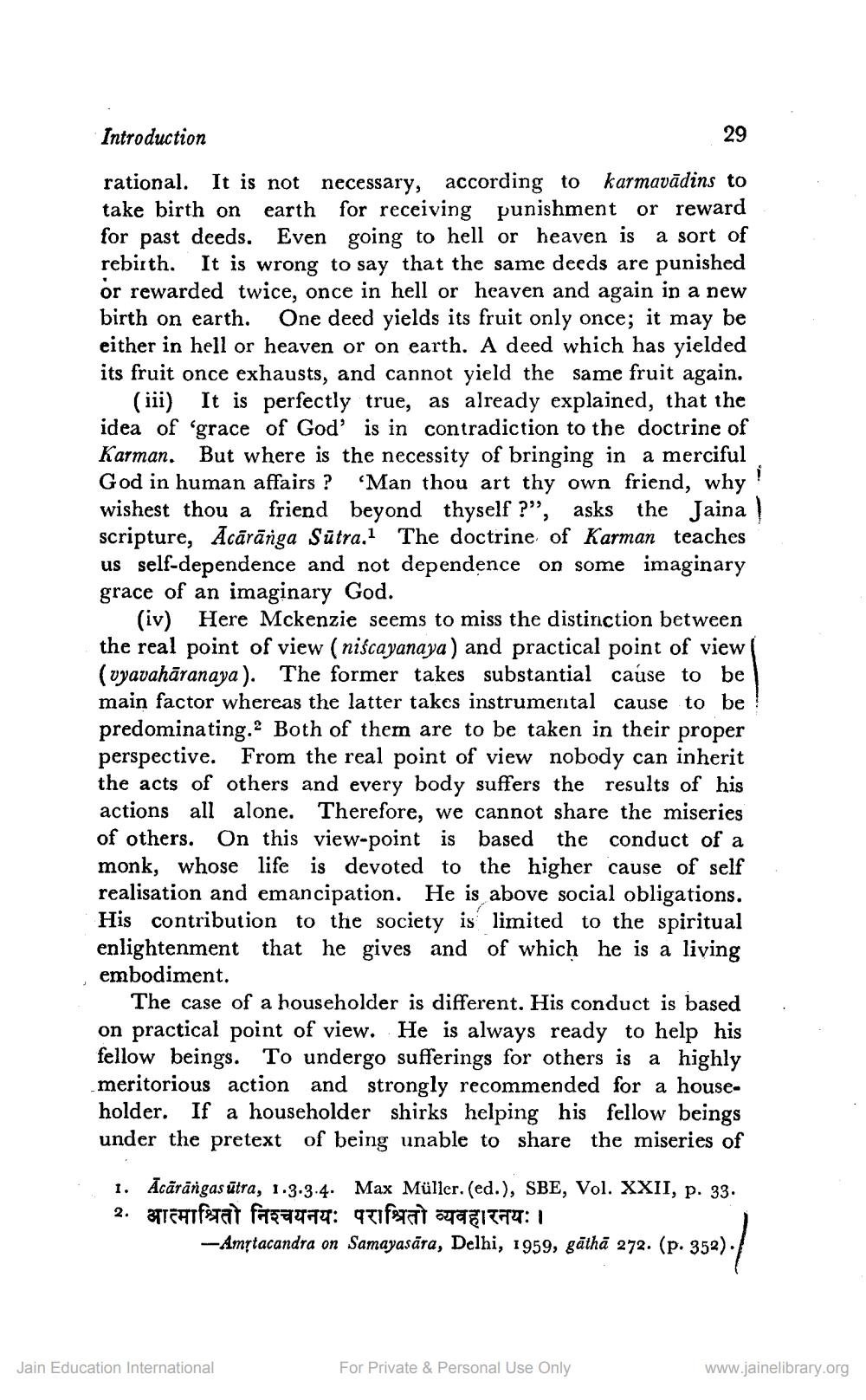________________
Introduction
rational. It is not necessary, according to karmavādins to take birth on earth for receiving punishment or reward for past deeds. Even going to hell or heaven is a sort of rebirth. It is wrong to say that the same deeds are punished or rewarded twice, once in hell or heaven and again in a new birth on earth. One deed yields its fruit only once; it may be either in hell or heaven or on earth. A deed which has yielded its fruit once exhausts, and cannot yield the same fruit again.
(iii) It is perfectly true, as already explained, that the idea of 'grace of God' is in contradiction to the doctrine of Karman. But where is the necessity of bringing in a merciful God in human affairs? 'Man thou art thy own friend, why wishest thou a friend beyond thyself ?", asks the Jaina scripture, Acārānga Sutra.1 The doctrine of Karman teaches us self-dependence and not dependence on some imaginary grace of an imaginary God.
2
(iv) Here Mckenzie seems to miss the distinction between the real point of view (niscayanaya) and practical point of view (vyavahāranaya). The former takes substantial cause to be main factor whereas the latter takes instrumental cause to be predominating. Both of them are to be taken in their proper perspective. From the real point of view nobody can inherit the acts of others and every body suffers the results of his actions all alone. Therefore, we cannot share the miseries of others. On this view-point is based the conduct of a monk, whose life is devoted to the higher cause of self realisation and emancipation. He is above social obligations. His contribution to the society is limited to the spiritual enlightenment that he gives and of which he is a living embodiment.
29
The case of a householder is different. His conduct is based on practical point of view. He is always ready to help his fellow beings. To undergo sufferings for others is a highly meritorious action and strongly recommended for a householder. If a householder shirks helping his fellow beings under the pretext of being unable to share the miseries of
1. Acārāngasūtra, 1.3.3.4. Max Müller. (ed.), SBE, Vol. XXII, p. 33. 2. आत्माश्रितो निश्चयनयः पराश्रितो व्यवहारनयः ।
-Amṛtacandra on Samayasara, Delhi, 1959, gāthā 272. (p. 352)
52)./
Jain Education International
For Private & Personal Use Only
www.jainelibrary.org




